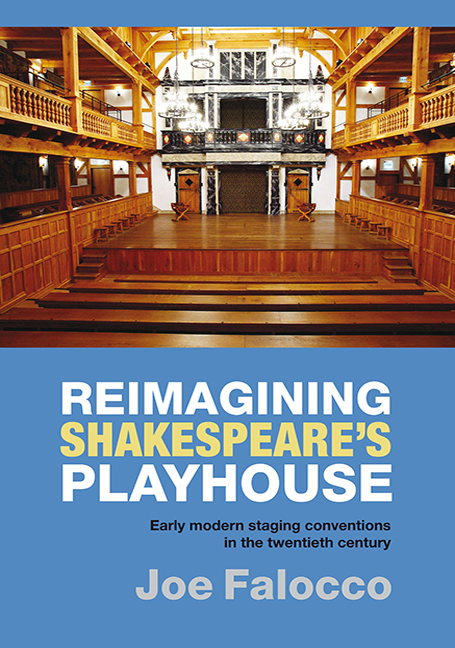Summary
In recent decades, scholars have implicated William Poel in a phenomenon termed “Shakespeare as Fetish” (Garber 242), in which Elizabethan productions are perceived as endorsing the hegemonic status quo. In this scheme an essential, authentic Shakespeare, frozen in time by the use of early modern staging conventions, serves to “naturalize a monolithic and monumental past as a means of governing the representation of the present” (Worthen, Authority 186). These critics see Poel as complicit in an effort to neutralize Shakespeare's potential impact by packaging and marketing his plays as banal nostalgia. This process is sometimes linked to the later “Disneyfication” of postmodern culture, in which any attempt at historical reconstruction assumes the ideological baggage of theme parks. The new Globe is thus seen as the “1990s fulfillment of Poel's aspirations in the 1890s,” in which drama is reduced “to a museum piece and performances to a tourist attraction” (Innes 119).
In contrast to this postmodern interpretation of the Elizabethan movement, Poel did not actually advocate a “monolithic” set of theatrical conventions to govern all kinds of performances. His non-Shakespearean productions, and indeed his later Shakespearean ones, demonstrate that Poel willingly experimented with a wide variety of theatrical forms. Rather than employing an artistically conservative set of unchanging practices to subtly endorse a regressive agenda, Poel's work represented his own Radical political philosophy. He believed that artistic and political institutions were not sacred, but instead needed to constantly justify themselves and change with the needs of the times. Through the active political engagement of his efforts, Poel sought not to reinforce the existing power structure, but to transform it. His productions strove not merely to reconstruct a distant past but also to instruct a modern audience.
Refuting the Conventional Wisdom
The problem with reading Poel as an antiquarian is that it obscures his other virtues. George Bernard Shaw understood this when he wrote that despite Poel's significant contribution to theatrical art he “received little acknowledgement except of the quainter aspects of his Elizabethanism” (review of The Spanish Gypsy 521). Unlike Shaw, many of Poel's contemporaries viewed him as an archaist. The standard critique of “museum Shakespeare” was articulated by the Times Literary Supplement in 1905. Poel was “a ‘hard-shell’ antiquary” who “would stop the clock” and “isolate Shakespeare in the Elizabethan playhouse from the ever-changing life of the world outside” (“Shakespeare as the Sleeping Beauty” 178).
- Type
- Chapter
- Information
- Reimagining Shakespeare's PlayhouseEarly Modern Staging Conventions in the Twentieth Century, pp. 7 - 36Publisher: Boydell & BrewerPrint publication year: 2010

